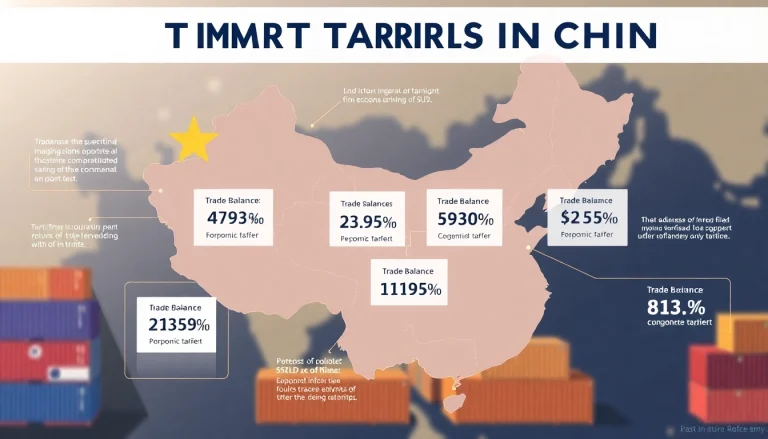Understanding International Real Estate Investment
What is International Real Estate Investment?
International real estate investment refers to the purchasing of property outside one’s home country with the intent of generating income, capital appreciation, or both. This form of investment has grown in popularity as globalization fosters greater mobility and investment opportunities. Investors can diversify their portfolios by venturing into foreign markets, giving them access to various property types — from residential apartments in bustling cities to commercial spaces in growing economies.
Benefits of Investing Abroad
Investing in international real estate comes with numerous advantages, including:
- Portfolio Diversification: International investments help spread risk across various markets, mitigating local downturns.
- Potential for Higher Returns: Some markets may offer better returns than domestic investments, particularly in developing countries with expanding economies.
- Access to Underpriced Properties: Investors can find properties in emerging markets that are undervalued compared to similar properties in their home country.
- Tax Advantages: Certain countries provide favorable tax regimes or incentives to foreign investors, enhancing overall returns.
- Personal Use and Lifestyle Benefits: Owning property abroad can offer personal enjoyment, such as vacation homes or retirement options in appealing locations.
Common Misconceptions
Although the idea of investing internationally is appealing, several misconceptions often deter potential investors:
- Complexity and Risk: Many believe that investing abroad is too complicated or risky due to unfamiliar regulations and economic conditions. While challenges exist, thorough research can mitigate these risks.
- High Costs Only: While some international markets can be expensive, many offer affordable investment options with good growth potential.
- Limited Opportunities for Ownership: Foreign ownership laws vary significantly by country, but many nations offer safe avenues for foreign investments.
- Language Barriers: Communication challenges can be overcome by working with local real estate professionals or translators.
How to Find International Real Estate Investment Opportunities
Researching Global Markets
Success in international real estate investment starts with thorough market research. Understanding the economic, political, and social landscape of potential investment locations is crucial.
Begin by identifying regions that align with your investment goals, such as high rental yields or potential for capital appreciation. Factors to consider include:
- Economic Stability: Look for countries with stable or growing economies, low unemployment rates, and favorable business climates.
- Real Estate Trends: Analyze local demand and supply dynamics, including population growth, employment rates, and new development projects.
- Political Environment: Check the stability of the political landscape and the impact any upcoming elections or policies might have on the real estate market.
- Local Laws and Regulations: Familiarize yourself with property laws and regulations that may affect foreign investment. Some countries have specific requirements or restrictions on foreign ownership.
Utilizing Online Platforms
The internet has revolutionized how investors find properties globally. Various platforms cater specifically to international real estate opportunities:
- Real Estate Websites: Websites like How to find international real estate investment opportunities provide extensive listings of properties available worldwide.
- Online Marketplaces: Platforms like Airbnb or Vrbo can provide insights into vacation rental markets by showcasing demand and rental prices.
- Real Estate Investment Groups: Forums and groups on social media and platforms like Reddit can offer discussions on potential markets, shared experiences, and advice from seasoned investors.
- Virtual Market Tours: Virtual reality tools allow investors to tour properties and neighborhoods without traveling, saving them time and resources.
Engaging Local Real Estate Agents
Local real estate agents are invaluable resources when investing in international markets. They offer insights that online platforms cannot provide, such as:
- Market Knowledge: Local agents understand market trends and can point out prime investment locations, historically undervalued areas, or neighborhoods undergoing revitalization.
- Navigating Regulations: They can assist you in understanding and navigating local regulations and requirements, ensuring compliance with all laws.
- Negotiation Expertise: Local agents possess negotiation skills specific to their markets and can advocate for your interests when purchasing property.
- Property Management Services: Many agents also offer property management services, which can be beneficial for managing rentals from abroad.
Evaluating Potential Investments
Market Trends and Analysis
Once potential investment locations are identified, conducting a detailed analysis of market trends is essential. This involves various analytical methods:
- Comparative Market Analysis (CMA): This technique evaluates comparable properties in the area to assess pricing and value.
- Historical Data: Analyzing historical property price trends and assessing previous economic cycles will help predict future performance.
- Rental Demand Analysis: Study the rental market to determine vacancy rates, tenure lengths, and demographic shifts influencing demand.
- Infrastructure Developments: Observe incoming infrastructure projects such as roads, schools, and public transportation that can boost property values.
Assessing Property Values
Understanding a property’s value involves more than just its listing price. Key components of property valuation include:
- Replacement Cost: Consider how much it would cost to build a similar property in the area today, which provides a baseline for value.
- Comparative Analysis: As mentioned, utilizing CMA allows you to benchmark properties against similar buildings sold recently.
- Future Appreciation Potential: Evaluation of local economic growth and demand can indicate how property values may appreciate over time.
- Property Condition: Always factor in the property’s physical state, age, and necessary repairs or updates that could affect its value and your return on investment.
Tax Implications and Costs
Tax obligations and costs can significantly impact the profitability of international real estate investments. Important factors include:
- Property Taxes: Understanding local tax rates and potential changes is vital for assessing ongoing costs.
- Income Taxes: Be aware of how rental income will be taxed, along with any applicable international tax treaties that may affect your investment.
- Capital Gains Taxes: Familiarize yourself with the rules surrounding capital gains taxes when selling a property, including how gains are calculated.
- Transfer Taxes: Many countries impose taxes when buying property; therefore, calculating these upfront can prepare you financially for the purchase.
Overcoming Challenges in International Real Estate
Navigating Legal Requirements
Navigating different legal systems can be complex. Understanding the specific laws and regulations regarding property ownership, taxes, and investment restrictions is crucial. Engaging a legal expert familiar with international real estate law is often beneficial to avoid pitfalls.
Understanding Cultural Differences
Cultural differences can impact various aspects of real estate investment, from negotiation styles to rental agreements. Familiarizing yourself with local customs and practices, and understanding the cultural context can enhance your investment strategy.
Risk Management Strategies
Every investment carries inherent risks, and international real estate is no exception. Implementing effective risk management strategies is essential:
- Diversify Investments: Consider investing across different regions, property types, or even sectors to mitigate overall risk.
- Conduct Thorough Due Diligence: Ensure comprehensive assessments of potential investments, including legal, financial, and market analyses.
- Invest in Insurance: Protect your assets with appropriate insurance coverage that caters to the unique risks associated with international properties.
- Stay Informed: Regularly monitoring global economic indicators and market trends will help you stay ahead and adjust your investment strategies as needed.
Case Studies: Successful International Investments
Top Locations for Successful Investments
Some regions have consistently attracted international investors due to their favorable market conditions. Examples include:
- Portugal: With its affordable property prices, excellent climate, and a non-habitual resident tax regime, Portugal has become a hotspot for foreign real estate investment.
- Mexico: Known for beautiful coastlines and affordable living, places like Playa del Carmen and Tulum have gained attention for lucrative short-term rental opportunities.
- Thailand: Cities such as Bangkok and Phuket have drawn investors thanks to booming tourism and attractive price points compared to other Asian markets.
- Germany: With robust economic stability, cities like Berlin offer potential investors appealing rental yields supported by a strong housing demand.
Lessons Learned from Experienced Investors
Listening to seasoned international investors can provide valuable insights. Common themes include:
- Patience is Key: Successful international investments often require patience and a long-term outlook, as property values can fluctuate with market cycles.
- Leverage Local Expertise: Engaging with local professionals helps in navigating the complexities of foreign markets.
- Stay Educated: Markets evolve, so continuous learning about economic trends, property management best practices, and local regulations is crucial for ongoing success.
Future Trends to Watch
As globalization progresses, several trends will shape international real estate investments:
- Technology Integration: The rise of proptech solutions will transform how investors connect with properties, conduct due diligence, and manage properties remotely.
- Sustainability: There is an increasing demand for eco-friendly and sustainable properties, influencing future development trends and investor preferences.
- Remote Work Influence: The shift toward remote work will prompt more investors to seek properties in regions previously considered secondary cities, enhancing rental demands in those markets.





















+ There are no comments
Add yours